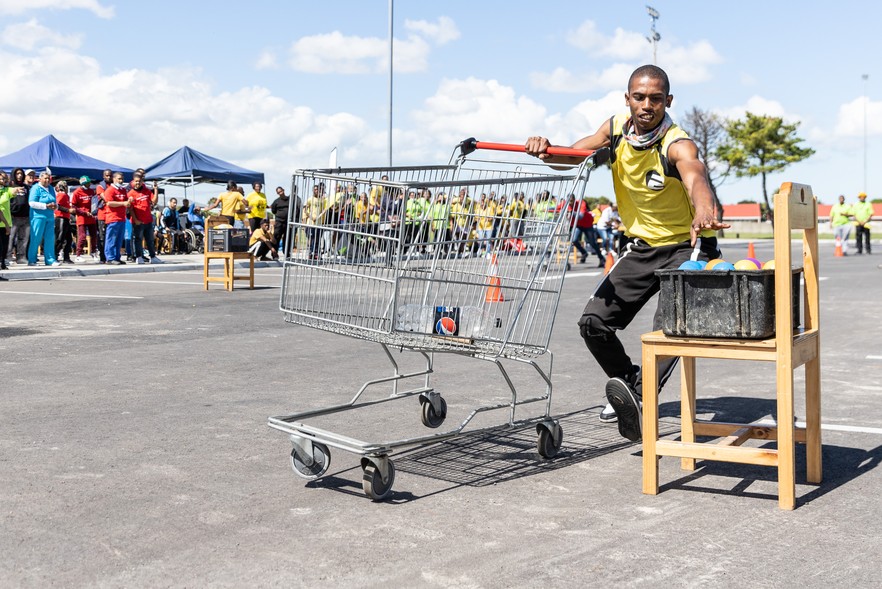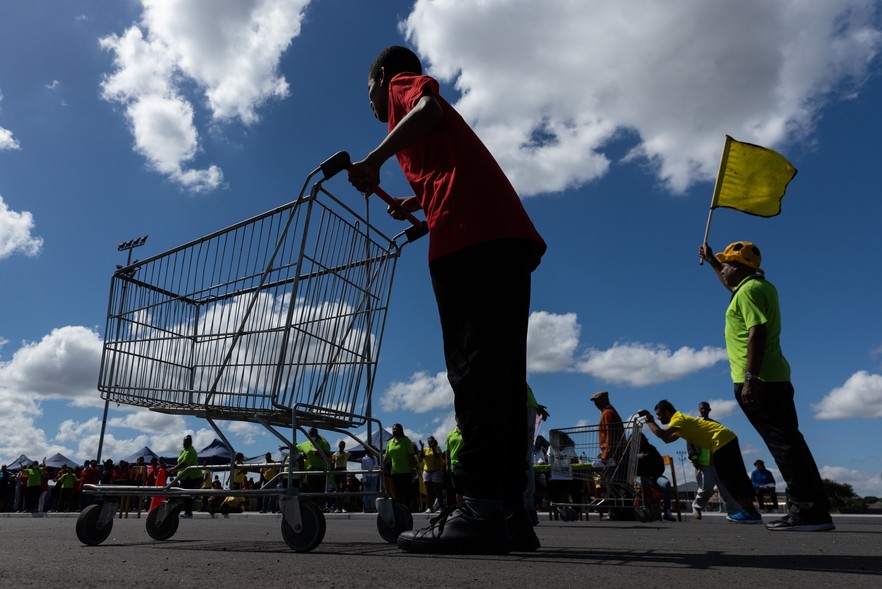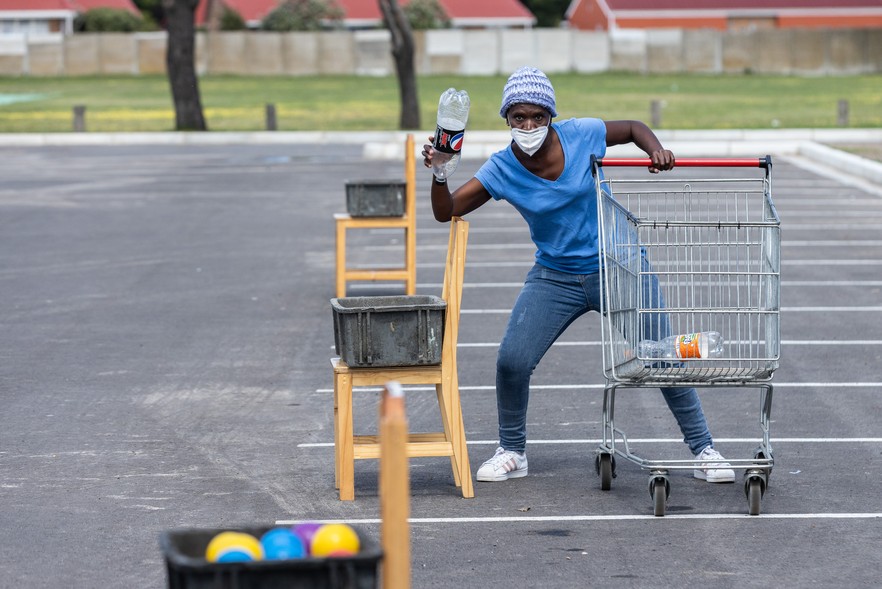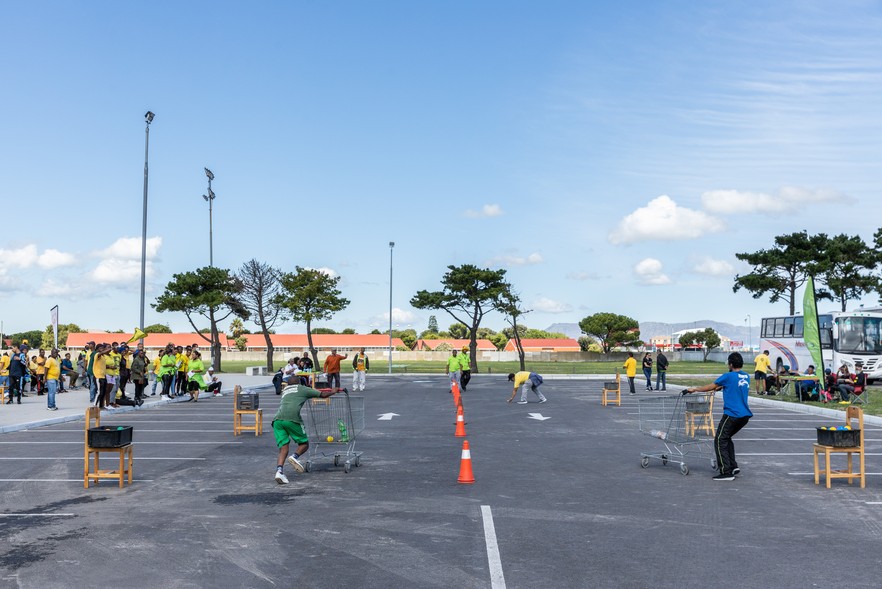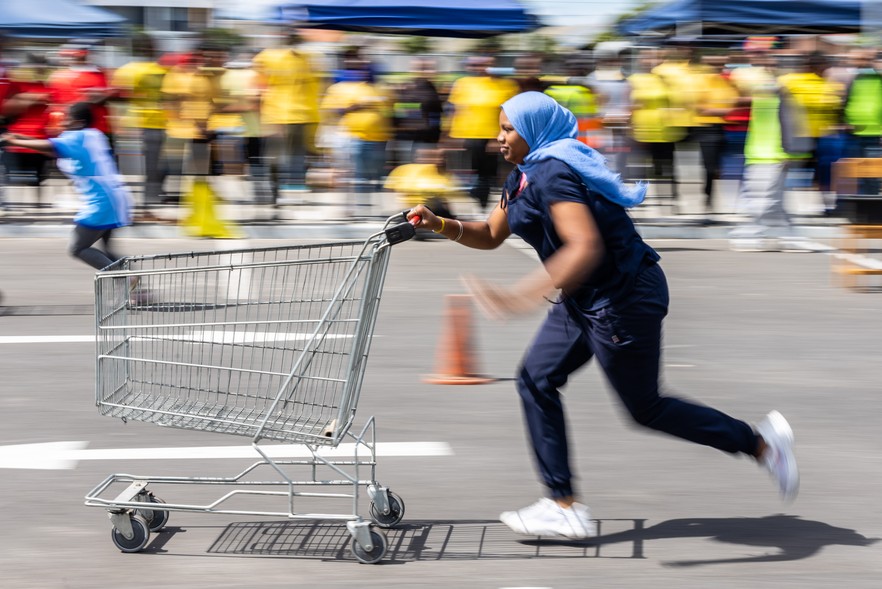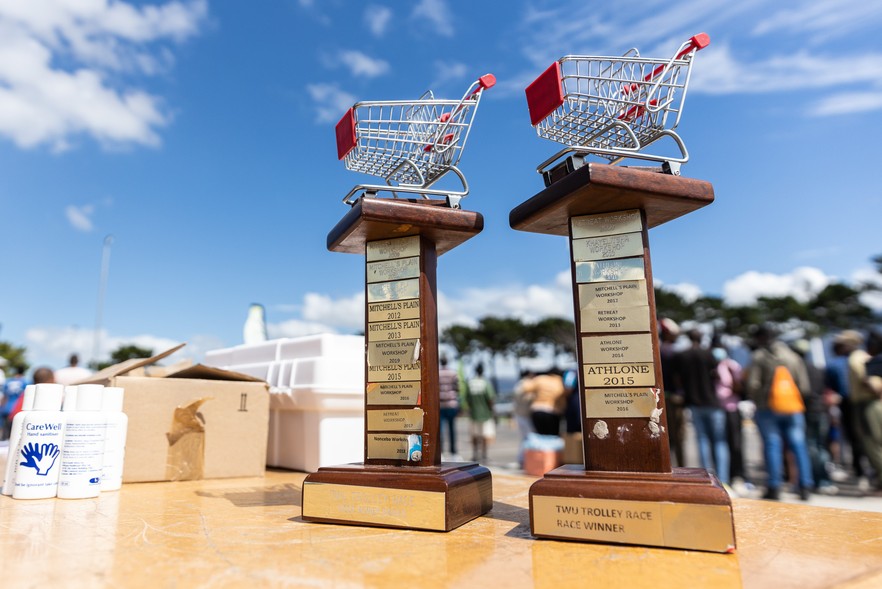Taking intellectual disability awareness month to the finish line
The annual event raises awareness and support
Dillon Cloete participates in the annual trolley race hosted by Cape Mental Health.
Hundreds of people gathered for the annual Trolley Race in support of Intellectual Disability Awareness Month on 22 March. Adults with mental disabilities from Khayelitsha, Mitchell’s Plain, Retreat and Athlone met at Rygate sports field in Athlone on Friday. The event was hosted by Cape Mental Health.
Spirits were high as the trainees cheered on their teammates as they raced up and down trying to get to the finish line first.
The annual trolley race is held to support intellectual disability awareness month.
Cape Mental Health works with people living with depression and schizophrenia, and a large part of their work is dedicated to people with intellectual disabilities. The organisation holds workshops gauged at various degrees of skill. Most of the trainees are from disadvantaged backgrounds.
Cape Mental Health spokesperson Barbara Meyer said that people with intellectual disabilities are often kept on the periphery of society. “You’ll find that people with an intellectual disability have the same interests as someone else, but they’re excluded … This month specifically is where we bring them directly into the forefront,” she said.
Nompelo Matthews was one of the competitors.
The trolley race has been held since 2009, but it was cancelled for two years due to the Covid pandemic. On Friday, the teams were separated into their Cape Mental Health workshops which are location-specific. They wore similarly-coloured shirts and one team from Nonceba, Khayelitsha, held a large banner. Two trolley trophies were handed out at the end of the day for the workshop that won the race and the workshop that had raised the most funds during the year.
There were also stalls selling food and wooden items that were built by the workshop groups.
They were also joined by a team from the Special Olympics. Its coach, Thulani Mphahlwa, said that practising sport allows us to “transcend views and prejudices that have for many years allowed people with an intellectual disability to be neglected by society and, sadly, by their families”.
Competitors run in a loop with a trolley to collect three items, such as a plastic bottle and a colourful ball, then return to the finish line to complete the race.
Russell Jones, who has been working at Cape Mental Health for about 17 years, runs a workshop that teaches cutting grass, trimming trees, cleaning flower beds, some plumbing, and carpentry, among other things. He has also helped some trainees arrange gardening jobs for themselves.
Jones has an intellectual disability himself and started out as a trainee at Cape Mental Health. He has schizophrenia but personally refers to being “schizo-friendly” because of the stigma attached to the term.
Tarin du Plessis was one of the over 600 trainees that participated in Cape Mental Health workshops.
One of the objectives of Jones’s and others’ workshops is to get trainees with intellectual disabilities to be independent and to enter the job market. They are taught work ethics and continue to be coached once they are working.
Currently, there are about 600 trainees that receive help from Cape Mental Health. Meyer said, “We focus on what you can do and not so much on what you can’t do.”
Trophies are given to the winning team and the Cape Mental Health workshop that raises the most money throughout the year.
Faisal Bawa, who has an intellectual disability and was a trainee before he was employed by Cape Mental Health, said that the days leading up to the trolley race were very exciting and motivating for the trainees. He said they had been practising since last week.
This year the Athlone workshop won both trophies.
“This is the best day of the year, because we bring everybody together,” said spokesperson Meyer.
Support independent journalism
Donate using Payfast

Don't miss out on the latest news
We respect your privacy, and promise we won't spam you.
Next: I left Zimbabwe to live in South Africa. I want to go back. This is why it’s hard.
Previous: Family and friends of murdered Phelokazi Mqathanya unveil mural in Khayelitsha
© 2023 GroundUp. This article is licensed under a Creative Commons Attribution-NoDerivatives 4.0 International License.
You may republish this article, so long as you credit the authors and GroundUp, and do not change the text. Please include a link back to the original article.
We put an invisible pixel in the article so that we can count traffic to republishers. All analytics tools are solely on our servers. We do not give our logs to any third party. Logs are deleted after two weeks. We do not use any IP address identifying information except to count regional traffic. We are solely interested in counting hits, not tracking users. If you republish, please do not delete the invisible pixel.

